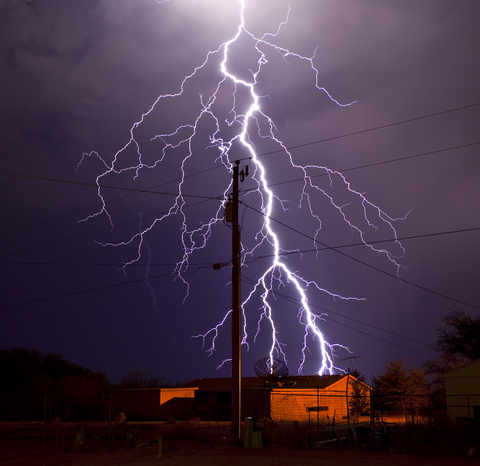Wednesday bubble: more cocoa loco – chocolate consumption and your heart
Back in June, I provided a thorough lowdown on the mysterious wonder known as chocolate and how it may or may not benefit your heart. Because I imagine that many of you have seen the latest headlines extolling the health power of chocolate, I thought it was important to clarify some of these latest findings, especially because women have a significant increase in heart disease as they enter and go through menopause.
So is it? Or isn’t it? That is, good for the heart?
A group of researchers have published an extensive review of studies examining chocolate consumption and risk of certain heart-related metabolic disorders (i.e. diabetes, coronary heart disease, congestive heart failure, heart attack and stroke). Of the seven included in the final writeup, five showed that the highest intake of chocolate was associated with roughly a third decrease in risk for any type of heart related metabolic disorder listed above, about 37% reduction for any type of heart disease, slightly over a third reduction in the risk for diabetes and about 29% reduced risk for stroke. These results remained even after the researchers looked at factors that might skew the results one way or another, such as age, level of physical activity, BMI, smoking, diet and drug use. However, all of the studies reported chocolate consumption differently, e.g. how often people ate chocolate, the type of chocolate (versus cocoa) consumed (chocolate bars, drinks or snacks) and the actually amount eaten daily or weekly. Most also relied on patient recall on how much chocolate they ate versus scientific records of chocolate eating patterns.
What you really need to know is that despite the sensationalist headlines about chocolate and its heart healthy benefits, these studies only showed an association and not a true cause (eating chocolate) and effect (less heart disease), which is critical.
The researchers say that excessive consumption of chocolate may actually have another effect: wight gain and increased risk for high blood pressure, diabetes, blood fat disorders and the like. And, as one of the researchers points out to my friend and colleague Nancy Shute, a reporter and blogger for NPR, all the study really showed was that people who reported that they ate a lot of chocolate were about a third less likely to develop diabetes, stroke or have a heart attack.
So, what’s next on the chocolate horizon? Researchers need cause and effect studies that corroborate the association that they are seeing. That means a randomized, scientific trial that compares amounts, types and conditions among healthy or unhealthy individuals. In the interim, it’s probably not the best idea to start eating mega amounts of chocolate to save your heart.
However, as grandma always told me “everything in moderation.” A little bit of chocolate can go a long, long way! And certainly can’t hurt.
Read MoreThe better to hear you…
What did you say?!
Did you know that menopause may be a trigger for age-related hearing loss?! Although men start losing the ability to hear high-frequency noise as early as age 30, a similar loss apparently does not become apparent in women until after age 50. This may be due to a protective effect played by female sex hormones, which would mean that as circulating estrogen starts to decline, it sets off a series of actions that trigger age-related hearing loss.
To test this theory, researchers conducted hearing tests (pure tone audiometry, which measures the ability to hear different thresholds) in 104 women who had been in menopause at least one year and were, on average, 51 years old. Hearing tests were repeated a second time roughly seven and a half years later. As a whole, the group of women was neither death or severely hearing impaired and the majority were not using hormones of any kind for their symptoms.
Interestingly, a vast majority of the women had accurate hearing when the study started. And yet, by the second hearing test, hearing decline relating to mid to high frequencies was very apparent, especially among women who were well into menopause (by about five to seven years). On average, these women were losing 1.1 to 1.5 decibals yearly. And even more interesting was the fact that depending on how long women had been in menopause, the hearing loss tending to favor one ear over another; women in menopause four years or less had greater decline in their left ear while their peers who had been in menopause five to seven years had greater decline in their right. This loss balanced out between ears by eight to 13 years into menopause and even appeared to slow.
The researchers say that estrogen appears to protect inner ear function and maintains what they refer to as ‘auditory integrity.’ However, once women enter menopause, there is a rapid, initial decrease in the ability to hear mid to high frequencies, first in the left ear and then in the right.
There is not too much a person can do about age-related hearing loss except for limit exposure to loud noise and keep your heart healthy so that blood flow to the ears is not constricted. However, unfortunately, most of us in our early 50s spent a lot of times in our formative years attending concerts, where noise level was the norm, not the exception. Consequently, we may already have a higher risk for hearing loss than our parents, but still a lower risk than our children, who by default, are constantly exposed to loud environments and noise from electronic devices. Add the estrogen factor and well, it’s sort of a losing proposition. Still, it’s helpful to know it’s not all in our heads or in our ears. Or better yet, entirely due to rock n roll.
Read More
Managing menopause naturally
 Anyone who is a regular reader of this blog knows that my goal is to explore and identify effective strategies to manage menopause and midlife challenges, strategies that don’t necessarily involve pharmaceutical agents. However, although I am strongly in favor of an integrative approach to health, I am the first to recognize that drugs and certain alternatives, e.g. herbs, are not incongruous but rather require informed decision making. What I don’t support, however, is disease mongering; as greater numbers of women enter menopause, they are increasingly becoming a target for the ‘Menopause Industrial Complex,’ a term that I believe applies to any organized effort to provide women with agents to combat the aging process and highlight the need to use them. In this case, informed decision making becomes a rather misinformed mess.
Anyone who is a regular reader of this blog knows that my goal is to explore and identify effective strategies to manage menopause and midlife challenges, strategies that don’t necessarily involve pharmaceutical agents. However, although I am strongly in favor of an integrative approach to health, I am the first to recognize that drugs and certain alternatives, e.g. herbs, are not incongruous but rather require informed decision making. What I don’t support, however, is disease mongering; as greater numbers of women enter menopause, they are increasingly becoming a target for the ‘Menopause Industrial Complex,’ a term that I believe applies to any organized effort to provide women with agents to combat the aging process and highlight the need to use them. In this case, informed decision making becomes a rather misinformed mess.
Speaking of misinformed messes, do you recall Hot Flash Havoc, which I characterized as ‘an infomercial of menopausal proportions, a messy mash-up of HRT hype and fear and loathing, a big estrogen dildo just waiting for an opening?’ Truly, this film made me lose faith in ways I never thought possible. Fortunately, however, everything that is so very wrong with Hot Flash Havoc is so very right with Managing Menopause Naturally, a new documentary that is slated for release on September 27.
Admittedly, I was skeptical going into the screening of this film. And fully convinced coming out of it that Managing Menopause Naturally achieves everything that Hot Flash Havoc did not. If there is a menopause goddess, she is lurking in a variety of MDs, nutritionists, midwives and academics, including those featured in this film, who believe that informed decision making lies with fair balance and choice and not with fear and self-loathing.
Managing Menopause Naturally takes the stance that postmenopausal women are no more estrogen-deficient than young girls approaching puberty and that contrary to public opinion, women going through menopause have plenty of hormones but at a lower level than their reproductive years. In fact, as Aleida LLanes-Oberstein (an RN and Board member of the New York State Midwifery Association) says, menopause is nature’s way of helping a woman move into a less stressful part of her life, to be free of childbearing and rather, nurture herself and her extended family. What an opportunity instead of a death sentence! Moreover, Western culture that has become desensitized toward this transition into another period of a woman’s life, a vision that is a far cry from Eastern cultures that believe that menopause is a period in a woman’s life where blood, fluid and hormones are directed inward for a woman to use for herself for revitalization and healing.
The film offers up current knowledge and education, not just about a woman’s anatomy but also about societal constructs, pharmaceutical and non-pharmaceutical strategies and generational distinctions. It provides a context for menopause, following a historical trail peppered with respectful humour and anecdotes. It is thorough, well-researched and challenges the viewer to challenge the status quo, place menopause within the context of an entire lifetime, acknowledge that there is no single correct path to follow and to make choices based on personal preference and need, as well as community knowledge. This is especially important notes one of the film’s experts, Tierona Low Dog, an MD and midwive and Director of Botanical Medicine at the University of Arizona Program of Integrative Medicine, particularly in the context of where we are today with hormone replacement. “If we start to use community knowledge, menopause and the issues surrounding hormone replacement therapy will be based on educated information and less on dogma,” she says.
In addition to community involvement, the film also points to the need for younger women to start thinking about menopause earlier, an opinion I have long held. Granted, it’s tough to think about menopause and aging in your mid-thirties when kids and family and work and life get in the way. And who wants to think about growing older? Nevertheless, as another expert, Isis M. Medina DC, CCN. Associate Professor at New York State College of Chiropractic notes, “taking measures to take charge early” can alter how the menopause transition plays out. The overriding message of the film is that ultimately, menopause is a personal puzzle that is only partially addressed by hormones, vitamins or other strategies and that that puzzle is a personal one with many data points ranging from lifestyle and geography to diet and culture.
If I have one major criticism of the film, it’s that it is too long, and I suspect that a few viewers will drop off far too early to obtain some of the more important messages that are sprinkled through towards the end. I wish that the editing had been tighter but even after watching it a second time, I’m not sure where I’d cut first; that’s how much I liked the point of view, the honesty and the tone.
Every now and then, something comes along to challenge our inner skeptic, inform our doubts, answer our concerns and help us forge a new path. This film is a gift and I encourage you to watch it.
[Disclosure: I did not receive any compensation to review or endorse this film. However, the marketers did provide me with a free copy of the DVD for my personal review and use.]
Read More
Wednesday Bubble: up in smoke
When I first posted this piece in 2008, it generated a lot of comments and a lot of concern, mostly among my contemporaries, who, like me, are former smokers. But since 2008, the one factor that consistently appears to be linked to menopause (and even early menopause) is smoking. Hence, I feel that it’s important to repost this – not only for my contemporaries but for those of you who continue to engage in the tobacco habit.

I remember the first time I had a cigarette. It was a Kool, purchased surreptitiously from the candy shop across the street from McKinley School. The year was 1969 and I was eight years old.
Yes, I said eight!
It used to be cool to smoke. My girlfriends and I would pretend we were in the teachers’ lounge (remember those?). By the time I got to college, I switched to clove cigarettes. And then afterwards, Marlboro Lights. I was up to a pack and a half a day by the time I stopped smoking. At the age of 30.
This means that I smoked, on and off, for 22 years.
At the age of 46, I had my first night sweat. I turned 47 this past May, and started to address my perimenopausal symptoms more seriously. And started this blog.
You may wonder why I’m sharing these intimate details of my covert and then overt smoking life.
Researchers say that first- and second-hand smoking not only increases the risk for death from heart disease and cancer, but may also significantly increase the risk for starting menopause at an earlier age (i.e., around age 45 rather than the average age of 51).
Data from a cross-section of 5,029 women aged 25 and older participating in the National Health and Nutrition Examination Survey III have shown that women who were current smokers (as measured by self-reports and blood levels of nicotine) started menopause at a mean age of 47, while women in service industries who were exposed to nicotine in their jobs started menopause at a mean age of 46.
Black women who had been regularly exposed to cigarette smoke had 12 times the odds of other racial groups of an earlier menopause age compared with smokers and nonsmokers who had not had any exposure. The investigators attributed this significantly increased risk among Black women to the body’s inability to clear nicotine from the blood as quickly as their peers.
The purpose of this study was to demonstrate that women in the workplace who are exposed to second-hand smoke are at increased risk for many of the same diseases as smokers. They’ve now added early menopause to this list.
What is less clear, however, is the risk for “former smokers,” since they were taken out of the analyses.
Makes you wonder if many of us who are former smokers or were exposed to second-hand smoke on a regular basis in our homes (a good percentage of women our age, as my sister in law pointed out), are at a higher risk as well.
Sort of like poster children, right?
Read MoreAnd then the power died…what did I forget?
I was planning on writing a review of a new documentary about menopause when the power died. Mama Nature and her power surge obviously has other plans for me so I will leave you to an oldie but goodie. Look for Wednesday’s Bubble cause this doc is worth consideration.
And so, without further ado…
If you’re anything like me, you are starting to forget things. Things you need to do, why you walk into rooms, shopping lists, things you said, the whole nine yards. For me, it’s become the norm, not the exception and while I spend a lot of time making jokes about it, it also drives me crazy.
Yet, today’s Bubble is not one that I’m likely to forget. I’d like to think of it as one part inspiration and one part WTF? And it leaves me with a whole lot of questions to boot.
Study findings suggest that gaining weight during menopause may increase the risk for loss of gray matter. Gray matter refers to the cortex of the brain, which contains nerve cells. It is involved in muscle control, sensory perception (seeing/hearing), emotions, speech and finally, memory.
In this study, which was published in the online edition of the journal Psychosomatic Medicine, researchers evaluated brain imaging data, demographic information (height, weight) and behavioral measures (perceived psychiatric stress) obtained from 48 healthy postmenopausal women. Data were collected over a 20-year period.
The findings showed a unique association between increase in body weight during the transition from peri- to post-menopause (as measured by body mass index or BMI) and a 22% reduction in grey matter volume. These findings occurred in women who were otherwise healthy, had no history of heart disease or psychiatric illness and did not meet the threshold for obesity (>30 BMI). All women had also undergone natural menopause.
The researchers suggest that weight gain during menopause is a “highly modifiable risk factor” that may help to prevent or slow “potential alterations in brain function that are important to quality of life.”
I’ve written previous posts on cognitive issues during menopause, whether they be linked with life stressors, HRT or aging. Now it seems that researchers are telling us that weight gain may also be a risk factor.
Less clear is how much weight gain and what we should do about it. In general one solution to combating weight gain in midlife is restraint. Coupled with exercise, this may just be the magic formula. In the meantime, I think that we need a few more studies to take a closer look at brain matter changes in midlife.
What do you think?
I just forgot why I’m asking you that…!
Read More








